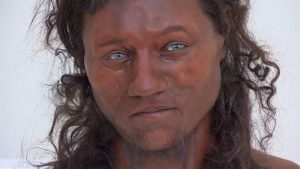
“Regina, wake up! Pay attention.”
Growing up I heard these words often. School was exceedingly boring in contrast to the world beyond the classroom. When the recess bell rang, I was the first one out the door. I raced into an environment where my attention was heightened and everything was vibrant and captivating.
It did not matter what activity was planned for the day. From kickball and baseball to board games, play released me from the captivity of the classroom routine. It gave me the delightful freedom to move and be amused.
On weekends I went wild for play. Piling into the car on Sunday afternoons, we took off with my best friend, his brother, my sister, and our moms. The winding road to the park reminded me of a snake weaving in and out of tall grass. Passing duck ponds, a golf course, and a rodeo arena, we arrived at a place without swings, slides, or merry-go-rounds, yet it was a playground full of adventure.
The unspoiled Guadalupe riverbank was teaming with opportunity. Thick vines cascaded from sturdy live oaks that lined the river’s edge. Run-off channels rose from the river up to the street.
“I’m a pioneer!” my best friend exclaimed, scurrying up the gully on a mission to discover uncharted territory. Following quickly behind, I searched for wildlife.
It seemed only moments had passed when a car honk signaled the roundup to return home. Taking a final glance as our car reached the top of the hill, I realized it was going to be at least six days before we returned to the wonder of that playful place.
As a child, I was expected and encouraged to spend time entertaining myself in activities. Play remained a big part of my life as I grew into young adulthood, with softball, basketball, and other team sports. When I entered college, I continued recreational activities like tennis and volleyball.
As I moved into the world of work, home, and adult responsibilities, the activities of my youth were replaced with gardening and amateur landscape design. I enjoyed riding my mountain bike along wilderness trails, canoeing down the rivers of Alabama, and holding marathon card games with friends.
Then I got caught up in the race of life. Working too long and too hard to create what I thought was a successful life took its toll. Overworked, I was tired all the time, stressed, and consistently cranky. My relationships suffered because I was not budgeting any regular periods of recreational time.
One day I made myself take a break from the “all work and no play” routine. Taking my dogs on a long walk along the lake in a nearby national forest took me back to the days along the river with my friend. Memories of how it felt to be a child, regularly engrossed in playful activities, made me smile.
It was then I realized the time I took off from my busy life was not a waste at all. During the “down times” I get some of my most creative inspiration, renew my spirit, and feel relaxed and peaceful.
Today play is an important part of my life. I gather friends for cookouts and board games. I also enjoy gardening and birdwatching. Once a month I join friends for an outing to a museum or botanical garden. Three or four times a week I exercise at the gym. Each day around noon I take a walk through our neighborhood and spend time in the natural world.
Too often we get so caught up in the adult responsibilities of life that we dismiss the idea of recreational time with the belief that play is for children. Not true. Research suggests play is an important part of life, whether we are children or adults.
According to the National Institute for Play, “Play can dramatically transform our personal health and relationships, generate optimism, give our immune system a boost, relieve depression, foster empathy, and lessen stress.”
Make time to play. Give yourself permission to be a child again. Permit yourself to return to a more innocent time in life, when doing something just for fun was encouraged and welcomed. No matter what activity you choose, do something on a regular basis to bring pleasure to your heart. Doing so is not a waste. It is a vital part of creating a joyful life.

